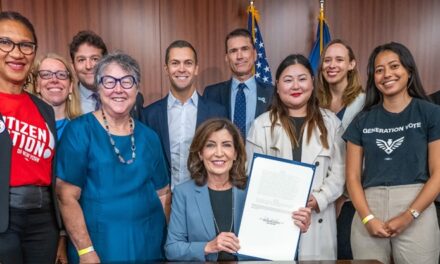The Creative Diversity Network’s sixth annual report on inclusivity in the U.K. TV industry reveals a generally sorry state of affairs with some sparks of progress.
The report analyzes data collected through the Diamond diversity monitoring system, used by the BBC, ITV, Channel 4, Paramount (which owns U.K. broadcaster Channel 5), UKTV and Sky to obtain consistent diversity data on programs they commission, revealing several areas of concern within the industry, particularly in off-screen and senior roles.
More from Variety
A significant finding is that women are making fewer contributions compared to four years ago, primarily due to a decline in senior roles. The number of female writers and directors remains alarmingly low, contributing to the overall decrease. Disabled individuals and individuals from Black, Asian and Minority Ethnic (BAME) backgrounds also continue to be underrepresented in senior positions, while craft roles remain largely segregated.
Except for the role of commissioning editor, individuals identifying as BAME are underrepresented in all senior positions compared to population estimates (13%). Specifically, series producers (5.5%) and heads of production (7.4%) show particularly low representation. South Asian representation off-screen has fallen to 2.4%, which is less than half of the U.K. population figure (4.9%).
Men continue to dominate most senior roles, particularly as directors (74.5%) and writers (67.3%). The number of women in senior positions has seen another decline over the past year, dropping from 46.8% to 45.4%. This marks a continuous decline since 2018-19 when the representation of women was at 50.4%. The decline in female contributions coincided with the pandemic and the initial lockdown. On the other hand, the representation of men in senior roles remained relatively stable during this period, suggesting that they were less likely to leave the workforce during the pandemic, while women struggled to regain their positions.
The representation of disabled individuals in senior roles has remained consistently low over the past four years. The overall proportion of on-screen contributions by disabled people has not increased during this time.
There have been some positive developments in certain areas, such as increased off-screen contributions by disabled individuals, individuals over 50, and those from BAME backgrounds. Contributions from individuals identifying as transgender have doubled over the past three years.
Deborah Williams, executive director, Creative Diversity Network, said: “Six years of Diamond reporting and analysis highlights stubborn areas across the industry, particularly in senior roles. It’s clear that despite the initiatives that our members and the wider industry have put in place, there still remains a lot of work to be done to tackle systemic inequality across the sector.”
Richard Watsham, chief creative officer, UKTV and global director of acquisitions, BBC Studios/UKTV, added: “While we are making good progress in off-screen representation, particularly by disabled people where we are leading the way, it is clear we have much more to deliver on-screen. This is being urgently addressed and will continue to be a key focus for us.”
Zai Bennett, managing director of content, Sky U.K. and Ireland, said: “This year’s findings once again reinforce the need for concerted action across the sector.”
Maria Kyriacou, president, broadcast and studios, international markets at Paramount, said: “We have more work to do – particularly around the industry-wide under-representation of disability – and we are focused on making sure our activity at Paramount, and our partnerships with the industry, continue to drive meaningful change.”
Carolyn McCall, CEO ITV, said: “We’re committed to working with industry colleagues to increase representation of disabled people across the TV industry, both on and off screen.”
Alex Mahon, CEO, Channel 4, said: “There is still so much work to be done if we want to nurture a genuinely inclusive culture where anyone, regardless of background, has the opportunity and support to forge a successful career in broadcasting.”
Tim Davie, BBC director general, said: “The Diamond data shows that our industry must continue to work hard to ensure the further progress we all want to see.”
John McVay, CEO Pact, said: “Pact will use this latest report to discuss with its members how to tackle the important issues it raises, particularly around increasing the number of women, disabled people and ethnic minorities in senior roles.”
Best of Variety
Sign up for Variety’s Newsletter. For the latest news, follow us on Facebook, Twitter, and Instagram.




